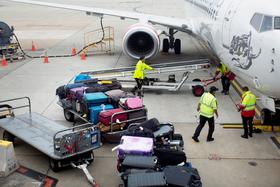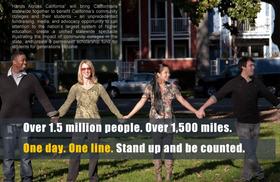- Mesabi Range College provides high quality education resulting in rewarding employment, lifelong learning, and the enriched lives of our students and community. Mesabi Range is accredited by the North Central Association of Colleges and Schools and is part of the Minnesota State Colleges and Universities System (MnSCU). Mesabi Range College will lead Northeastern Minnesota in accessible, innovative, and high quality learning and educational opportunities. Mesabi Range College values leadership in learning through innovation, excellence, integrity, and accountability.
School Highlights
Mesabi Range College serves 926 students (50% of students are full-time).
The college's student:teacher ratio of 12:1 is lower than the state community college average of 22:1.
Minority enrollment is 14% of the student body (majority Black and American), which is less than the state average of 42%.
Quick Stats (2025)
- Enrollment: 926 students
- In-state tuition: $5,310
- Out-state tuition: $6,492
- Student:teacher ratio: 12:1
- Minority enrollment: 14%
- Source: Verified school update
Top Rankings
Mesabi Range College ranks among the top 20% of public schools in Minnesota for:
Category
Attribute
School Resources
Debt For Students
School Overview
The teacher population of 79 teachers has stayed relatively flat over five years.
Mesabi Range College
(MN) Community College Avg.
Carnegie Classification
Not applicable, not in Carnegie universe (not accredited or nondegree-granting)
Associate's Colleges: Mixed Transfer/Career & Technical-Mixed Traditional/Nontraditional
Institution Level
At least 2 but less than 4 years
At least 2 but less than 4 years
Institution Control
Public
Public
Year Founded
1918
Total Faculty
79 staff
171 staff
School Calendar
Student Body
The student population of Mesabi Range College has declined by 9% over five years.
The student:teacher ratio of 12:1 has stayed the same over five years.
The Mesabi Range College diversity score of 0.26 is less than the state average of 0.63. The school's diversity has declined by 34% over five years.
Total Enrollment
926 students
2,858 students
Student : Teacher Ratio
12:1
22:1
# Full-Time Students
466 students
1,050 students
# Part-Time Students
460 students
1,808 students
# Enrollment Undergraduate
755 students
420 students
# Full-Time Undergraduate Students
466 students
915 students
# Full-Time Graduate Students
n/a
38 students
# Part-Time Undergraduate Students
460 students
1,771 students
# Part-Time Graduate Students
n/a
12 students
Total Dormitory Capacity
n/a
116 students
% American Indian/Alaskan
3%
1%
% Asian
n/a
6%
% Hispanic
1%
8%
% Black
3%
15%
% White
86%
58%
% Hawaiian
n/a
1%
% Two or more races
5%
4%
% Non Resident races
n/a
1%
% Unknown races
2%
6%
Diversity Score
0.26
0.63
College Completion Rate (Students who graduate in less than 4 years)
31%
34%
College Completion Rate (Students who graduate in 4 years or more than 4 years)
n/a
57%
Average Graduate Earnings (10 Years)
$31,800
$36,900
Tuition and Acceptance Rate
The public in-state tuition of $5,310 is less than the state average of $5,489. The in-state tuition has stayed relatively flat over four years.
The public out-state tuition of $6,492 is more than the state average of $6,145. The out-state tuition has stayed relatively flat over four years.
In-State Tuition Fees
$5,310
$5,489
Out-State Tuition Fees
$6,492
$6,145
% Students Receiving Some Financial Aid
98%
89%
Median Debt for Graduates
$10,283
$12,264
Median Debt for Dropouts
$7,290
$6,750
Acceptance Rate
n/a
94%
SAT Reading
n/a
625
SAT Math
n/a
600
SAT Writing
n/a
565
ACT Composite
n/a
24
ACT English
n/a
24
ACT Math
n/a
23
ACT Writing
n/a
8
Sports
Total Sports Offered
5 sports
Sports
Baseball, Basketball, Football, Softball, Volleyball
Extracurriculars
Total ExtracurricularsTotal Extra-curric.
7 extracurriculars
ExtracurricularsExtra-curric.
Club or Organization:
Arts and Music Programs:
Gaming Club, Human Services Club, Nursing Club, Student Senate/Student Life, Welding Club
Arts and Music Programs:
Art Club, Theatre
Source: 2023 (or latest year available) Integrated Postsecondary Education Data System (IPEDS) , School Administrators
School Notes
- School Mascot: Norsemen
- Located in the heart of beautiful northern Minnesota, Mesabi range has small class sizes and a strong tradition of successful academics, intercollegiate athletics, student government and student life. Exceppent placement rates and high paying jobs in most of our career programs.
- The college foundation awards $105,000 in scholarhsips annualy
- Women's volleyball, women's basketball, softball,football, men's basketball, baseball
- * International study, student government, theatre, Phi Theta Kappa Honor Society, career program clubs and a strong student life program
- * Semi-furnished apartments on the Virginia Campus
Frequently Asked Questions
How much does Mesabi Range College cost?
Mesabi Range College's tuition is approximately $5,310 for In-State students and $6,492 for Out-State students.
What schools are Mesabi Range College often compared to?
Mesabi Range Collegeis often viewed alongside schools like Mesabi Range College - Eveleth Campus by visitors of our site.
What sports does Mesabi Range College offer?
Mesabi Range College offers 5 interscholastic sports: Baseball, Basketball, Football, Softball and Volleyball.
What is Mesabi Range College's ranking?
Mesabi Range College ranks among the top 20% of community college in Minnesota for: Percent of students receiving financial aid and Least debt for graduating students.
Recent Articles

Unlocking Airport Career Opportunities: Your Guide to Ground Jobs
Discover the diverse range of ground jobs at mid-size U.S. airports, their educational requirements, and how community colleges can prepare you for these exciting careers.

The Real Dollar Value of an Associate Degree
How much is an associate's degree really worth? We calculate and research the ROI of an associate degree specifically, and the results are interesting.

Hands Across California: Community College Students Band Together to Save the System
Facing a monumental budget crisis, California's community college students took matters into their own hands, holding rallies and conferences for Hands Across California.










